You Say Chaos, I Say Accountability
The GOP spin machine is revving up with the news of Alberto Gonzales' departure. Some Republicans are suggesting that tracking down wrongdoing in Gonzales' Justice Department would bring not peace but extreme disruption. In other words: Can't we all be buddies and forget these trivialities?WASHINGTON — The resignation of Attorney General Alberto Gonzales is only the beginning of accountability, not the end of it. His decision to leave underscores the need for a public reckoning of the extent to which the Justice Department was politicized under his stewardship.
But how divisive the coming months will be depends hugely on whom Bush names to succeed Gonzales, and on whether Republicans in Congress are thinking more about Bush’s legacy or their own.
Gonzales was forced to go not because of Democratic opposition, but because many in President Bush’s own party — notably and honorably Sen. Arlen Specter, the ranking Republican on the Judiciary Committee — were appalled by his performance.
The new politics unleashed by Gonzales’ resignation were clear from the moment that word of his departure began to circulate. After months of public support, Bush abruptly reversed himself and let Gonzales go in the hope that his allies could now charge that further inquiries into Gonzales’ Justice Department were politically motivated. Sen. John Cornyn, R-Texas, set the tone early, telling CNN: “This will not bring peace. This will bring more chaos.” Note that “chaos” will now be the new definition of accountability.
Bush stayed partisan to the end, charging that Gonzales’ “good name was dragged through the mud for political reasons.” No concessions, no admissions, no regrets.
Democrats, publicly and privately, pledged not to back off on investigating what went wrong on Gonzales’ watch. But whether that journey toward the truth occurs in a deliberate or a partisan way depends, in part, on how leading Republican members of Congress judge their current obligations and their long-term interests. With Gonzales gone and with Bush set to finish his term in less than a year and a half, the GOP could cut itself loose from one of the shabbier aspects of this presidency.
Or the party could fight on for Bush, and hope to bury the issues raised by the attorney general’s tenure beneath months of angry invective.
Bush could significantly relieve the pressure by making an above-politics choice as Gonzales’ replacement. Sen. Charles E. Schumer, D-N.Y., one of Gonzales’ sharpest critics, sent a strong signal in an interview, saying that “if you have an attorney general who puts the rule of law first … you could find out what happened [under Gonzales] pretty quickly and move on.”
Investigations under such circumstances, Schumer said, could be “much lower key,” since Congress could have confidence that the Justice Department was on a different course.
However, even the least partisan and most qualified nominee will not escape tough hearings. Too much damage has been done, and the next attorney general must be committed to a cleanup, not a cover-up.
Bush’s appointee will need to make an unbreakable commitment not to use prosecutions and investigations — particularly questionable allegations of voter fraud — to influence the outcome of the 2008 elections. A successor should also pledge to get to the bottom of the unusual firing of nine U.S. attorneys in the middle of the president’s time in office.
At the same time, the nominee will need to restore faith that the extraordinary powers granted government in the name of fighting terrorism are not abused, and are subjected to serious oversight. Schumer said that Bush may have let Gonzales go in part because only a fresh attorney general could successfully negotiate a new terrorist surveillance bill with Congress this fall.
The model for President Bush to ponder as Gonzales’ successor is obvious. When Gerald Ford took over from Richard Nixon, the Justice Department was a shambles, discredited by political abuse and corruption at the top. In naming a new attorney general, Ford turned not to a political crony but to Edward Levi, the president of the University of Chicago. Levi’ s reputation as a man of integrity who despised the abuse of power almost instantly restored the department’s standing.
Levi understood the danger of seeing all “human relationships … in terms of power relationships — in terms of the manipulation of power,” as he put it in a 1976 essay for Newsweek magazine.
“I really think that’s one of the most wicked ways of looking at the world,” Levi went on. “It’s a very incomplete way. It strips people of their humanness. It converts all the other good attributes people have into just an ability or a desire to manipulate others.”
In this polarized time, Justice desperately needs a new Edward Levi. So does Bush.
E.J. Dionne’s e-mail address is postchat(at)aol.com.
© 2007, Washington Post Writers Group
Your support matters…Independent journalism is under threat and overshadowed by heavily funded mainstream media.
You can help level the playing field. Become a member.
Your tax-deductible contribution keeps us digging beneath the headlines to give you thought-provoking, investigative reporting and analysis that unearths what's really happening- without compromise.
Give today to support our courageous, independent journalists.
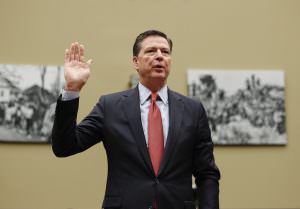

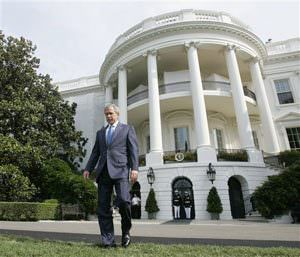
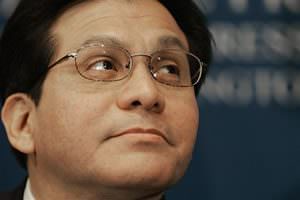
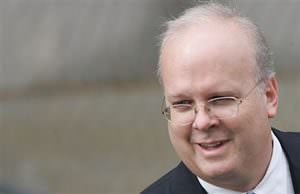
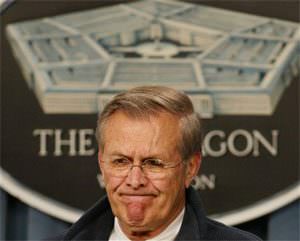
You need to be a supporter to comment.
There are currently no responses to this article.
Be the first to respond.